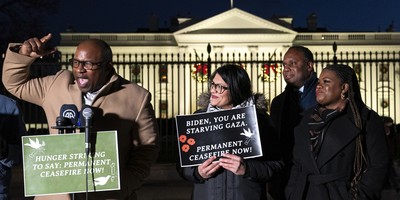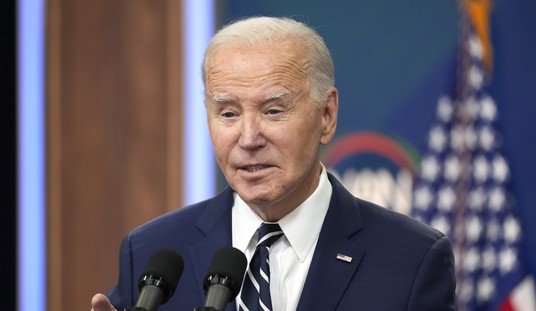Twenty-five years ago this weekend, Mikhail Gorbachev took the reins of power in the now defunct, late-but-not-lamented Soviet Union, upon the death of Konstantin Chernenko. It is an open question as to whether or not Chernenko had been alive for long before this, or was he just propped up? And maybe it is just a coincidence that the movie Weekend at Bernie's came out just a few years later. After all, the director was of Bulgarian (Soviet Bloc) descent. Just sayin’.
At any rate, Gorbachev’s rise to power is seen now in hindsight as the moment the tide began to turn in the Cold War, with the at-first slow, then accelerated breakdown of the Soviet machine—a socialist system. Within a few years, a wall came tumbling down and once-enslaved republics broke free from Soviet hegemony. Some began the slow process of converting to a measure of capitalism, though finding it tough going in light of the fact that the resident populations were so accustomed to having everything (what little “everything” was in such places) provided for them—from housing, to, yes—health care.
George Santayana where are you when we need you?

Conservatives don’t worship the past—or at least we shouldn’t—but we do see it as a valid reference point in decision-making about the future. Those who fashion themselves more “progressive” (actually a term with its own past) suggest we should go into the future experimentally and without the safety net of tried-and-true precedence. And when certain ideas and ideals from the past are resurrected in spite of the fact that they have never worked anytime, anywhere—these “visionaries” are convinced that the reason they failed before is because those sincere people way back when were simply not as enlightened as we are today.
We are living in an era of political gnosticism.
The term gnosticism is from the Greek and carries the idea of knowledge—but is especially related to various forms of superior or esoteric knowledge. Basically, a gnostic is a puffed-up know-it-all who has greater powers of insight and discernment than mere mortals. And in political terms these “best and brightest of the best and brightest” flock together just knowing that if they could run things the way Plato envisioned in his Republic—in other words, as a great big, all-seeing, all-knowing, political aristocracy—the world would be a better place.
Recommended
At least for them.
The new political gnostics don’t trust markets or anything else they can’t control, so they seek such control as a concession to their brilliance. Gnostics always have a better idea than average every day people. Trust them. They know. They know all. They see all.
Of course, it’s hard to pull off political gnosticism without arrogance and the propensity to impatiently lecture the moronic masses. But gnostic arrogance is surely, at least to insiders, a small price to pay for making the planes fly on time and ensuring that all the rest of us are well-fed a healthy, trans fat-free diet, and can get a number to stand in line at the clinic.
Here’s the deal. George W. Bush was “cocky.” He had a bring-it-on bravado about him that was, to many Americans, off-putting. I understand that. He was self-assured and convinced of the rightness of his ideas. I didn’t really have a problem with that. Leaders need to be confident. But there’s a difference between “cocky” and “arrogant.”
I never had the impression that our 43rd president thought of himself as the smartest guy in the nation—or the room. These days, however, I can’t help but find myself recoiling at arrogance born of political gnosticism. Sometime back, a colleague of mine remarked about someone else that, “you could almost hear the words coming down his nose as he talked.” It’s sort of like that.
At every turn, the American people—when given the chance via ballots, rallies or meetings with legislators—have sent not-so-subtle signals to Washington that they don’t want bigger government, they don’t want Obamacare, and they are not happy with what is going on. It begs the question: Why aren’t some leaders listening?
Well, it’s because when you have superior knowledge and just know you are smarter than everyone else, any contrary word is just the kind of noise kids on a Charlie Brown TV Special hear when a teacher talks—blah, blah, blah.
Shortly after President John F. Kennedy had put together his cabinet during the transition period before his 1961 inaugural, someone remarked to the Speaker of the House, Sam Rayburn, about how educated and smart they all were. Rayburn replied, “But I wish at least one of them had run for sheriff at least once!”
And I find myself wishing we had some people in high places these days conversant in building something or sweating a payroll. Smart people, though—especially of the gnostic type—have difficulty grasping the concept that they might actually be wrong. It’s like that character, Sheldon, on the TV sitcom, The Big Bang Theory, who condescendingly remarked to his friend: “Howard, you know me to be a very smart man. Don't you think that if I were wrong, I'd know it?”
Apparently not.
Oh, and Sheldon also said something once that pretty much describes how I feel about the future if all the socialist machinations in the hopper actually become the way things are in this country. It’s when he said: “I believe the appropriate metaphor here involves a river of excrement and a Native American water vessel without any means of propulsion.”

























Join the conversation as a VIP Member